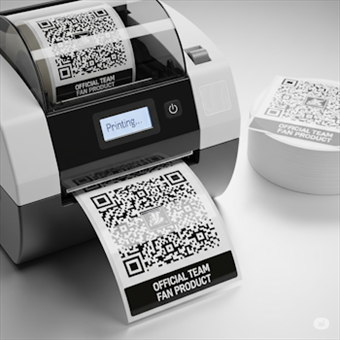 Why Should Malaysians Care About Digital Product Passports?
Why Should Malaysians Care About Digital Product Passports?
Introduction
As the global economy shifts toward sustainability, transparency, and digitalization, Digital Product Passports (DPPs) are emerging as a game-changer. While the concept may sound distant or technical, it holds significant implications for Malaysian businesses, exporters, and consumers alike.

What is a AGen Digital Product Passport?
AGen Digital Product Passport is a digital record that contains detailed information about a product’s lifecycle — from raw materials and manufacturing processes to usage, repairability, and end-of-life recycling. Think of it as a digital ID for products, enabling traceability and accountability across the supply chain.

Why It Matters to Malaysia
Export Competitiveness in the EU and Beyond
The European Union is leading the charge with its Ecodesign for Sustainable Products Regulation (ESPR), which mandates DPPs for many product categories starting as early as 2026. For Malaysian exporters, especially in electronics, textiles, and industrial goods, this means:
Mandatory compliance to access EU markets.
Increased transparency in sourcing and production.
Opportunities to differentiate through sustainable practices.
Failing to adopt DPPs could mean losing access to key export markets.
Alignment with ESG Goals
Environmental, Social, and Governance (ESG) reporting is no longer optional — it's becoming a business imperative. DPPs help companies:
Track and report carbon footprints and material usage.
Demonstrate ethical sourcing and labor practices.
Build trust with investors, regulators, and consumers.
For Malaysian companies aiming to attract foreign investment or participate in green supply chains, DPPs offer a structured way to prove ESG compliance.
Driving the Circular Economy
Malaysia generates over 38,000 tonnes of waste daily, much of it from industrial and consumer products. DPPs support a circular economy by:
Enabling product reuse, repair, and recycling.
Providing data for reverse logistics and material recovery.
Encouraging eco-design and resource efficiency.
This aligns with Malaysia’s Twelfth Malaysia Plan and National Circular Economy Roadmap, which emphasize sustainable consumption and production.
Accelerating Industry 4.0 Transformation
DPPs are not just about sustainability — they’re also a digital innovation tool. They integrate with:
IoT sensors for real-time tracking.
AI and analytics for predictive maintenance and lifecycle optimization.
For Malaysian manufacturers embracing Industry 4.0, DPPs offer a pathway to smarter, more connected operations.
What Should Malaysian Businesses Do Now?
Start mapping your product data — materials, suppliers, carbon footprint, etc.
Engage with industry associations and government agencies like MIDA and MITI for guidance.
Explore pilot projects using RFID, QR codes, or blockchain to digitize product information.
Collaborate with tech partners to build scalable DPP solutions.
Final Thoughts
Digital Product Passports are not just a regulatory requirement — they’re a strategic opportunity. For Malaysia, embracing DPPs means staying competitive, sustainable, and future-ready in a rapidly evolving global landscape.
By:
pang
| Date:
25 Aug2025